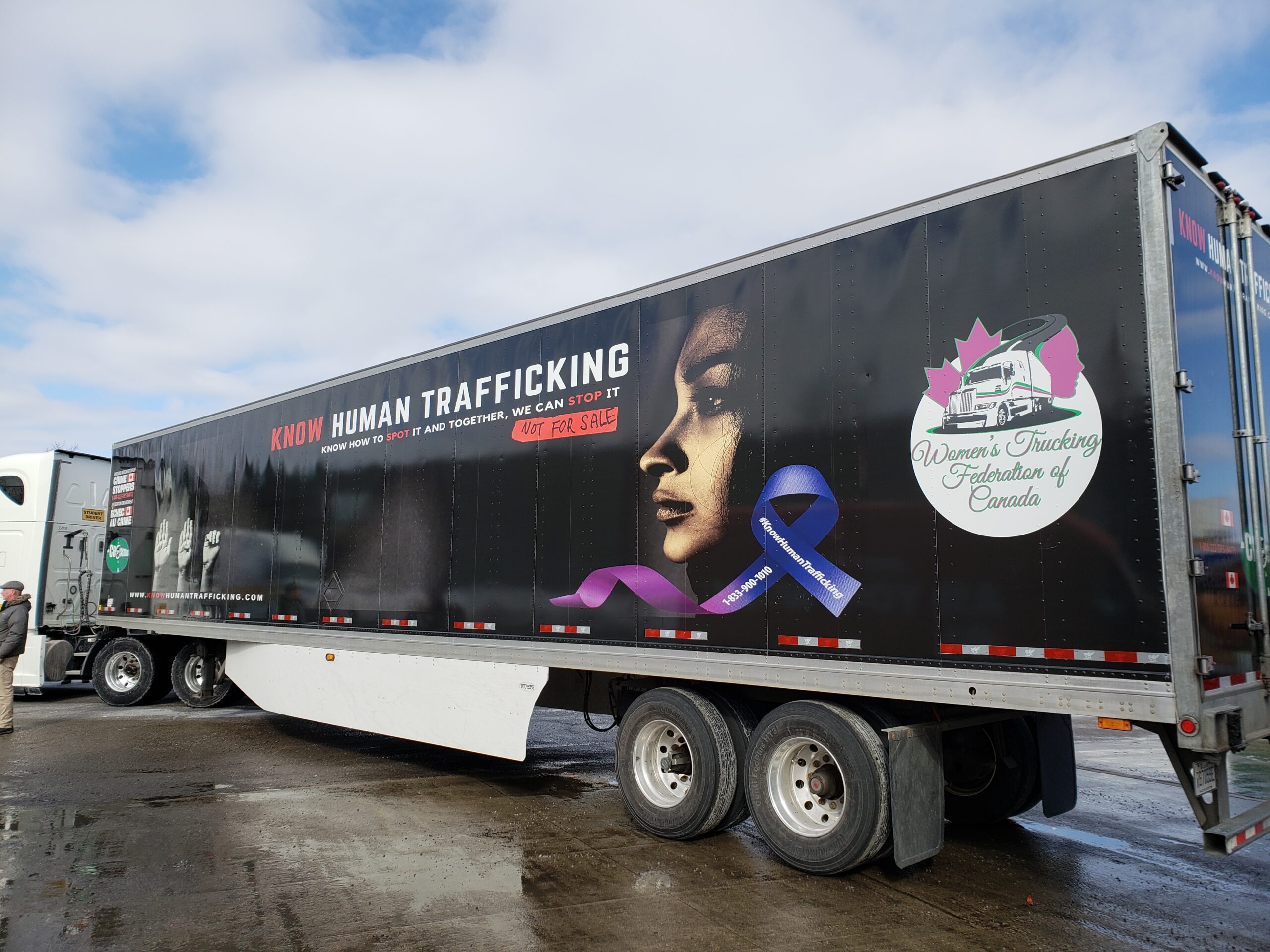Tuesday was National Human Trafficking Awareness Day in Canada and a group representing women truckers continues to play a pivotal role in human-trafficking prevention.
Because hundreds of truckloads of goods are carried from Toronto to Montreal and even cross-border daily, the federation decided to use some vehicles as moving billboards with hotlines on them.
Police have said that Hwy 401 is a notorious hotspot for human trafficking activity while also being a popular route for truckers – which is where the Women’s Trucking Federation of Canada (WTFC) came into play.
Traffickers use this route as a way to get between cities and to keep the victims away from their family/friends – and leave the victims reliant on their captors.
“When we heard how bad it occurs on the 401 highway, especially from Windsor to Quebec, we thought we needed to do something to help,” said Shelly Walker, CEO of WTFC.
This week, her group paid to have two transport trailers display an anti-trafficking message including a toll-free hotline for victims to call for assistance.
The trucks serve as both a form of assistance and a gateway for individuals to gain an understanding of human trafficking and its prevalence.
The Canadian Centre to End Human Trafficking acts as a backbone agency to connect victims with needed resources. Between 2019-2020, The Canadian Human Traffricking Hotline received 415 cases.
Director of Research and Policy, James McLean, told Humber News on Wednesday that the pandemic has strained support systems.
“They were already under-resourced and underfunded before the pandemic, and I think what the pandemic has done is expose that pressure and make it much more difficult for them to operate,” said McLean.
“What our key message is to governments is that social services – the most vulnerable Canadians in our country – depend on them and they’re not being funded and resourced at the level that is required.”
McLean said The Canadian Human Traffricking Hotline has received a surge of callers within the past year, “and have stayed at elevated levels ever since.”
There have been instances that the hotline was unable to refer individuals to resources due to unavailability.
McLean said labor trafficking is the least well-understood form of trafficking – accounting for seven per cent of cases between 2019-2020.
The Centre will be building inroads to groups such as migrant workers, believing that the percentage will then increase. It is aiming to release updated trafficking statistics as early as this fall.
Walker provided an example of an instance in which a trucker made all the difference for some young girls.
“There was a driver that was in a rest area, seen a van come in,” she recalled.
“It was four or five young girls, and it seemed to him like they were being ushered out of the van quickly inside,” said Walker.
“And he thought to himself, well it’s kind of a weird time of the year and COVID is going on, and it’s not enough for a sporting team and the van had no markings on it. So he made the phone call to the police.”
The women’s trucking group also offers a training course for truckers, where they can learn how to spot trafficking, what to do and who to call. The course is being taught by human trafficking survivors who also share their stories.
Although being designed for truckers, Walker encourages anyone to take the training.
Walker stated she wanted this course to be a way to give back.
“That course funded six survivors for six months. So, gave them a paycheque and the ability to buy food and pay rent.”
The awareness campaign operates at a time when many truckers are receiving criticism for the recent lengthy protests in Ottawa.
While Walker’s group had nothing to do with it, she said she’s been receiving hate emails and phone calls.

